When it comes to reviewing an article, conveying enthusiasm and appreciation for the opportunity is key. A well-crafted response can set a positive tone and pave the way for constructive collaboration. In this letter template, you'll find the essentials for acknowledging the invitation while expressing your eagerness to contribute. Ready to learn how to put your best foot forward in a reviewer invitation response? Dive into the details below!
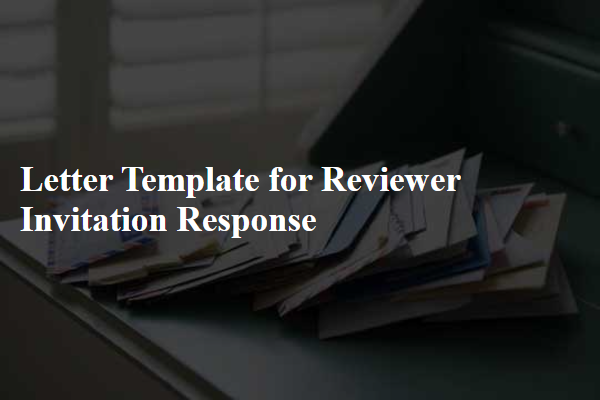
Gratitude Expression
Gratitude is essential in fostering positive relationships within the academic community. Acknowledgment of the opportunity to participate as a reviewer for scholarly manuscripts reflects appreciation for the trust placed in one's expertise. Timely communication is crucial, ideally within two weeks of receiving the invitation. Citing the journal name or conference, along with the deadline for reviews, emphasizes the importance of the commitment. Expressing eagerness to contribute to the peer review process enhances collaboration, ultimately supporting the quality of published research in fields such as medicine, engineering, or social sciences. A gracious tone combined with professional courtesy creates a rapport that encourages future engagements within the scholarly network.
Availability Confirmation
A response to a reviewer invitation typically includes essential elements like appreciation, confirmation of availability, and understanding of the review topic. For example, expressing gratitude for the opportunity to evaluate a manuscript can establish a positive tone. Mentioning a specific date, such as agreeing to complete the review by April 15, can demonstrate commitment. Acknowledging the manuscript's title or subject matter, like "Advancements in Renewable Energy Technologies," showcases understanding of the field. Confirming familiarity with the review guidelines, published by a reputable journal like "Renewable Energy Reviews," further emphasizes professionalism and preparedness.
Conflict of Interest Disclosure
Conflict of interest disclosures are essential in maintaining transparency and integrity in peer review processes. Reviewers should declare any relationships or affiliations that could influence their impartiality. Such conflicts may include financial interests, employment, consulting agreements, or personal relationships with authors. For instance, a reviewer with a financial stake in a company's product discussed in a manuscript could face a conflict that may impact their judgement. Furthermore, affiliations with the authors' institutions or prior collaborations may also create biases. Proper disclosure allows the editorial team to make informed decisions about assigning reviewers and upholding the review's credibility. Transparency in these matters fosters trust in the scientific community and ensures that the review process remains robust.
Timeline Acknowledgment
Timely responses to reviewer invitations are crucial within the academic publication process. Researchers often face deadlines, such as the required submission date of 4-6 weeks post-invitation from journals like the Journal of Applied Psychology. Acknowledging the timeline not only demonstrates professionalism but also enhances communication between authors and editorial teams. Anticipating time constraints and managing schedules can significantly improve the overall review experience, leading to efficient decision-making and maintaining the integrity of the publication schedule.
Professional Signature
Inviting a reviewer for a manuscript submission is a vital process in academic publishing. A peer reviewer plays a crucial role in maintaining the quality of research by providing constructive feedback. When responding to a reviewer invitation, it is essential to convey gratitude and express your willingness to contribute positively to the publication. Personalizing the response by mentioning the specific manuscript title and journal name can strengthen the professional tone of the communication. Additionally, acknowledging the review period, typically around four to six weeks, creates clarity regarding expectations. Ensuring a formal sign-off, including pertinent credentials such as the author's name, institutional affiliation, and contact information, adds credibility to the response.
Letter Template For Reviewer Invitation Response Samples
Letter template of notification of scheduling conflict for reviewer invitation
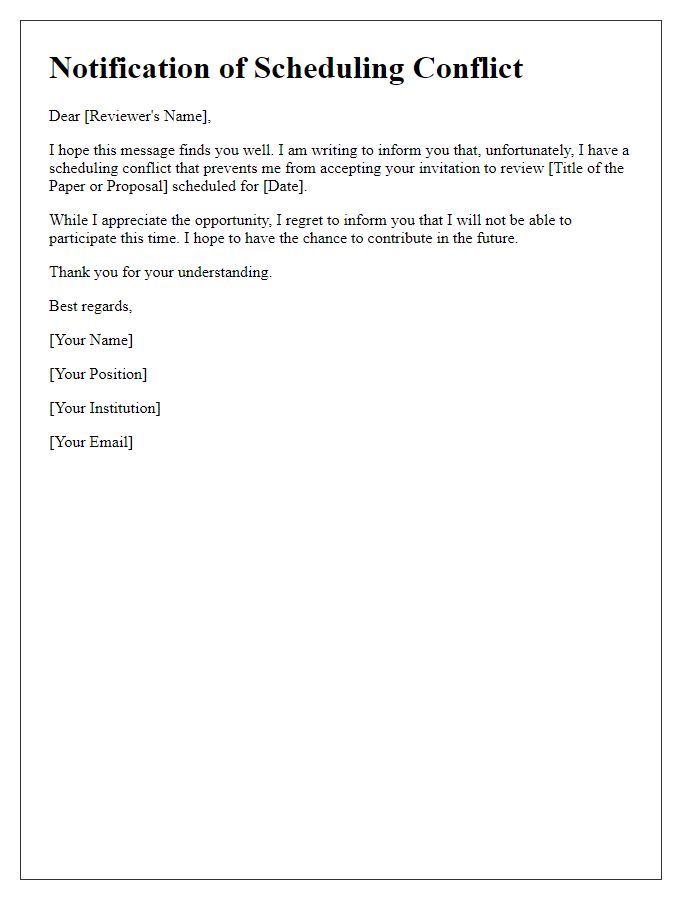

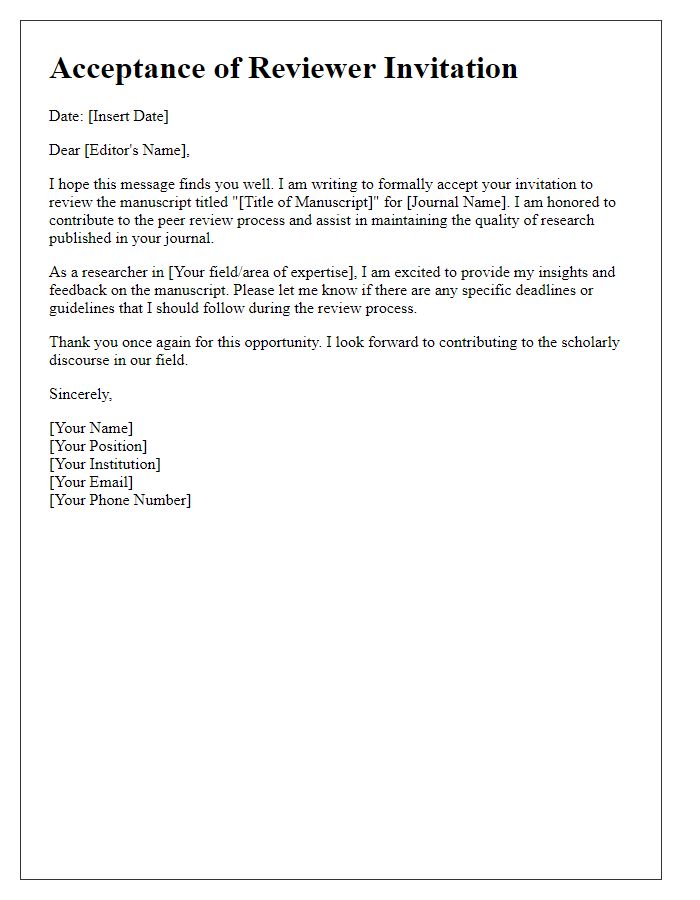
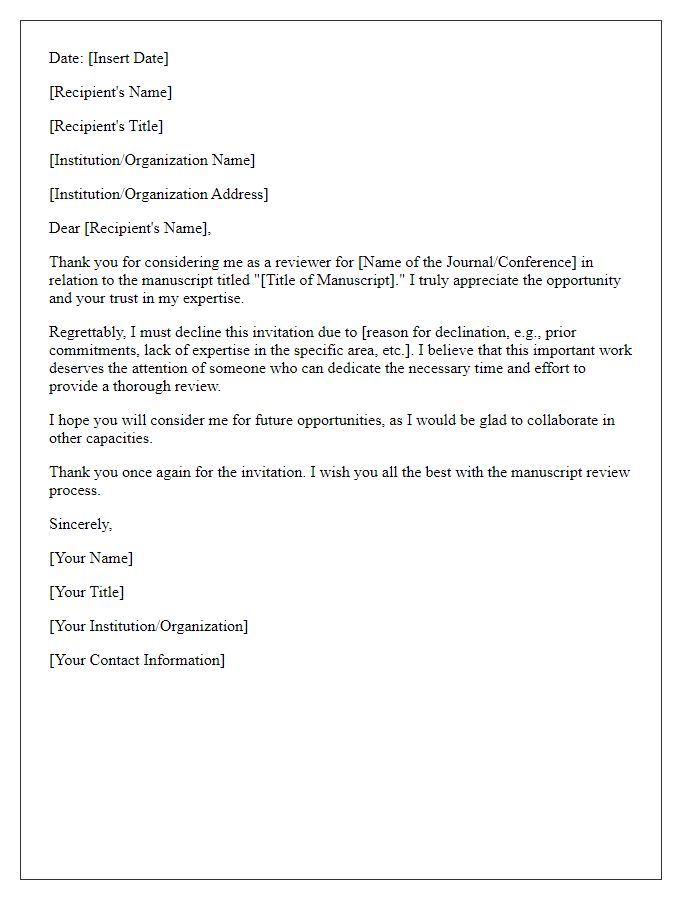
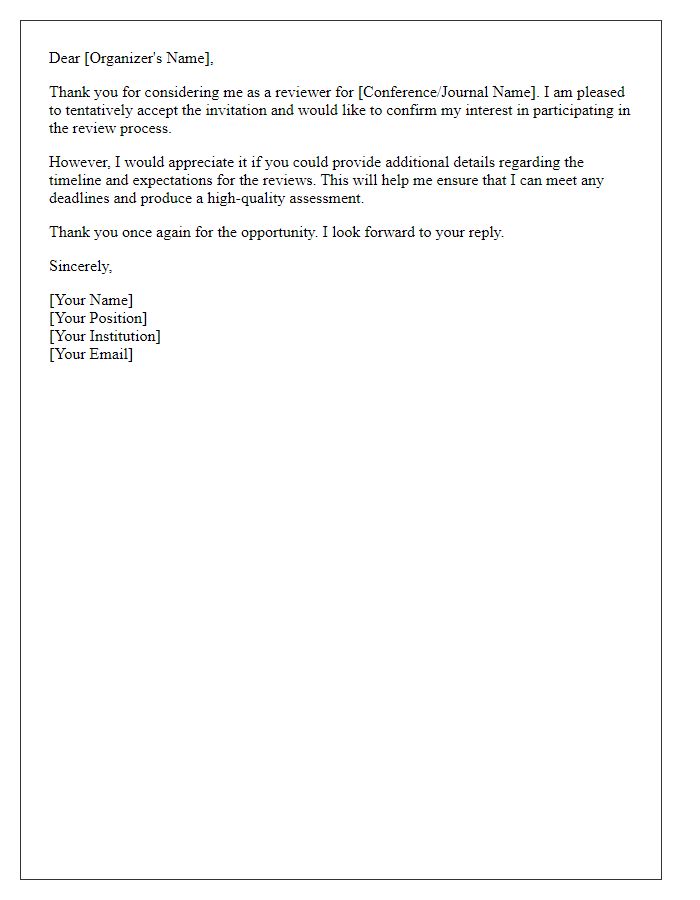
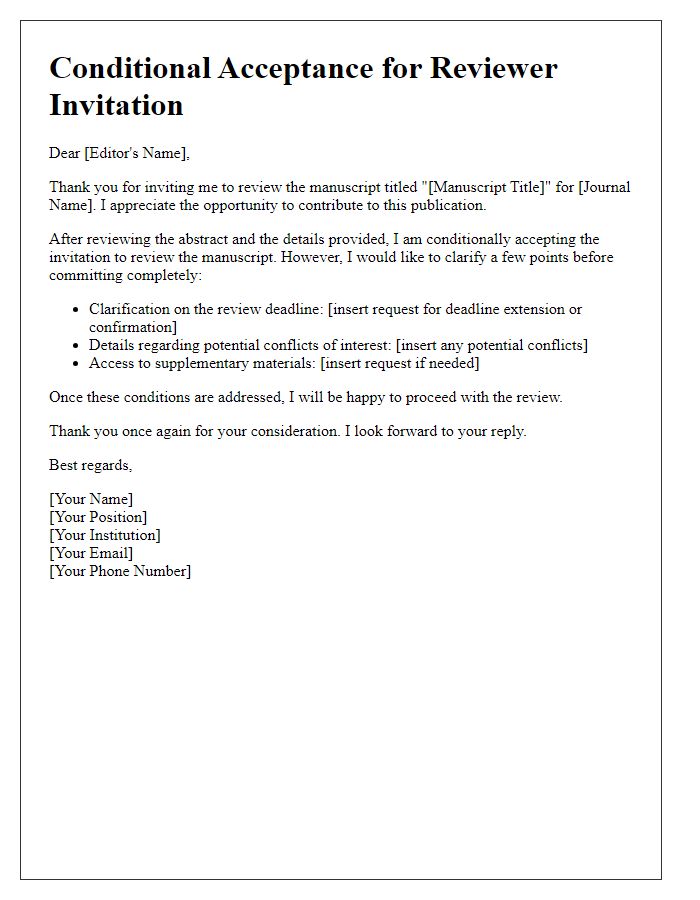
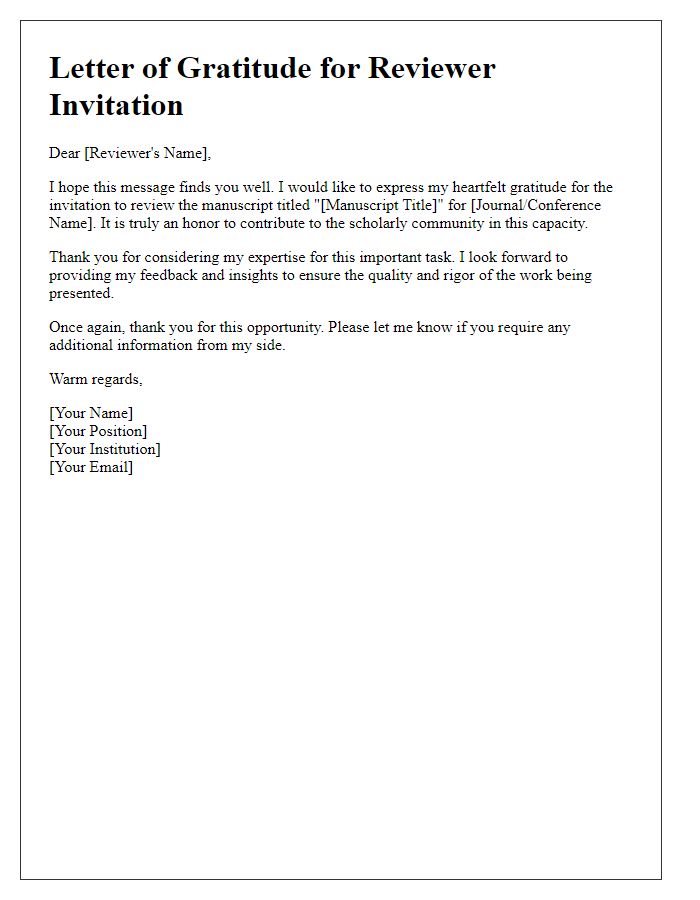
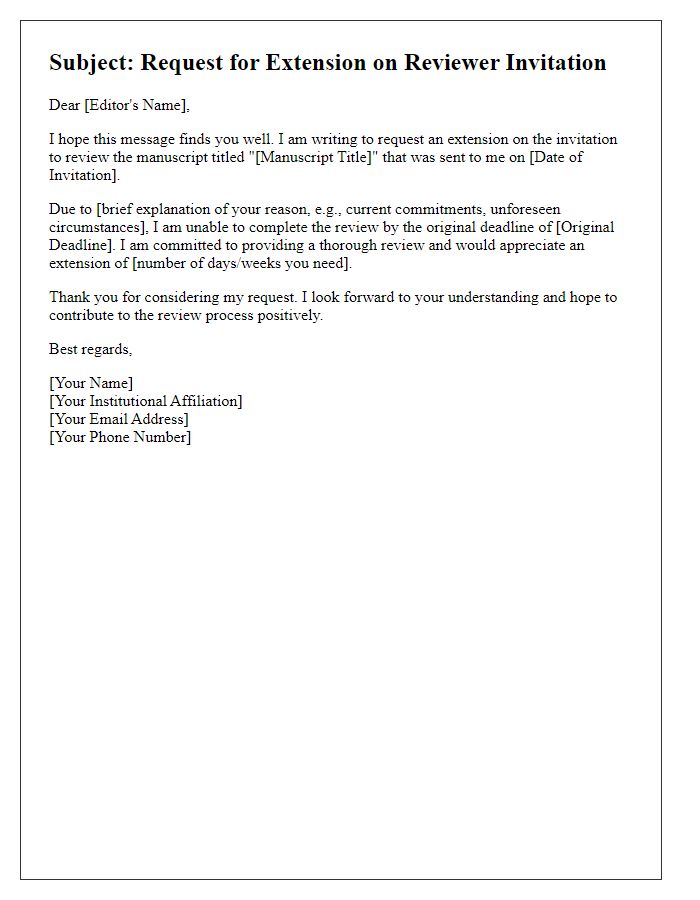
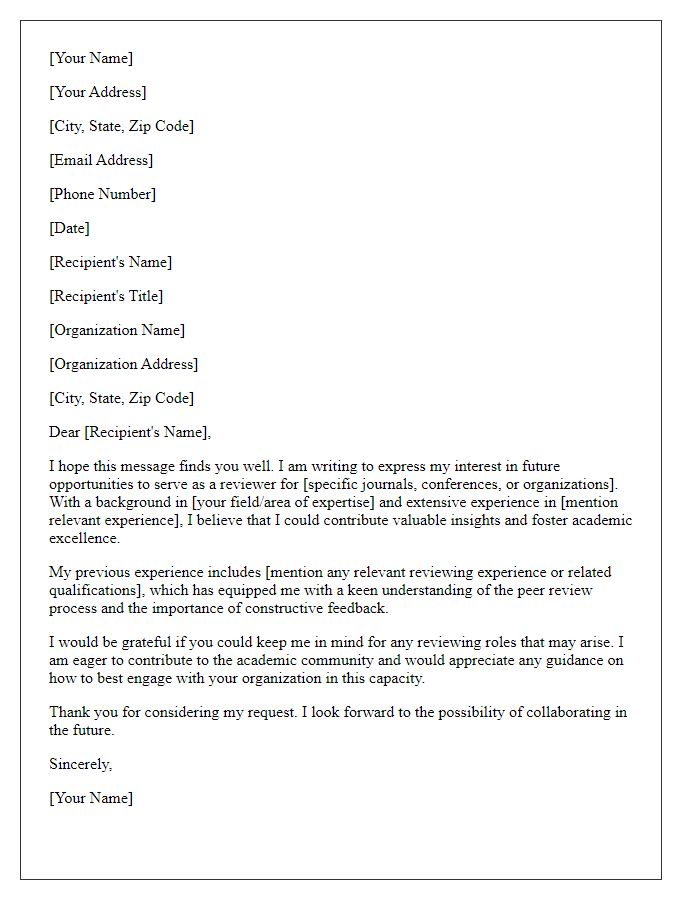
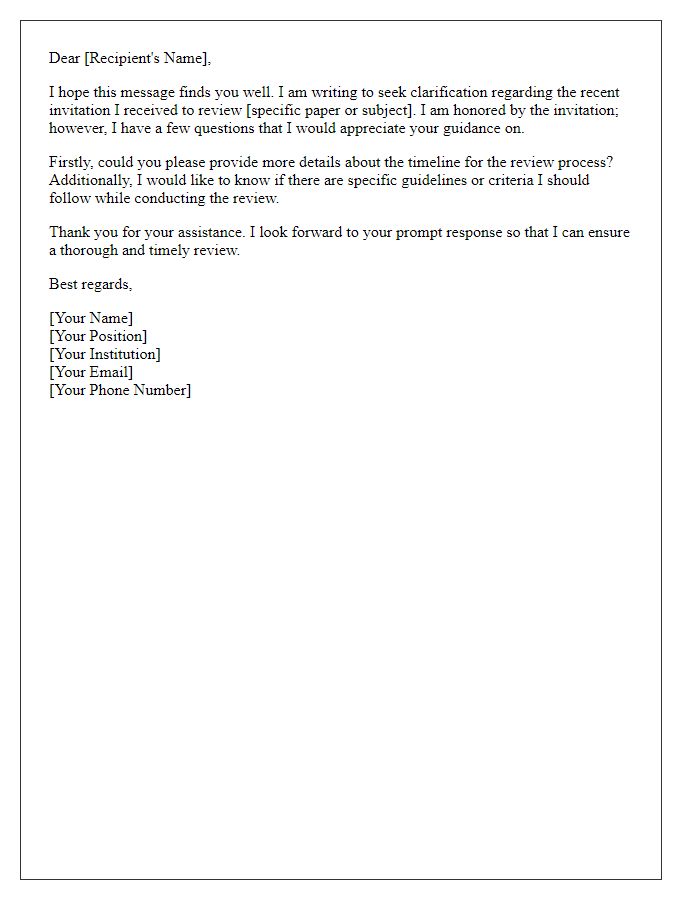
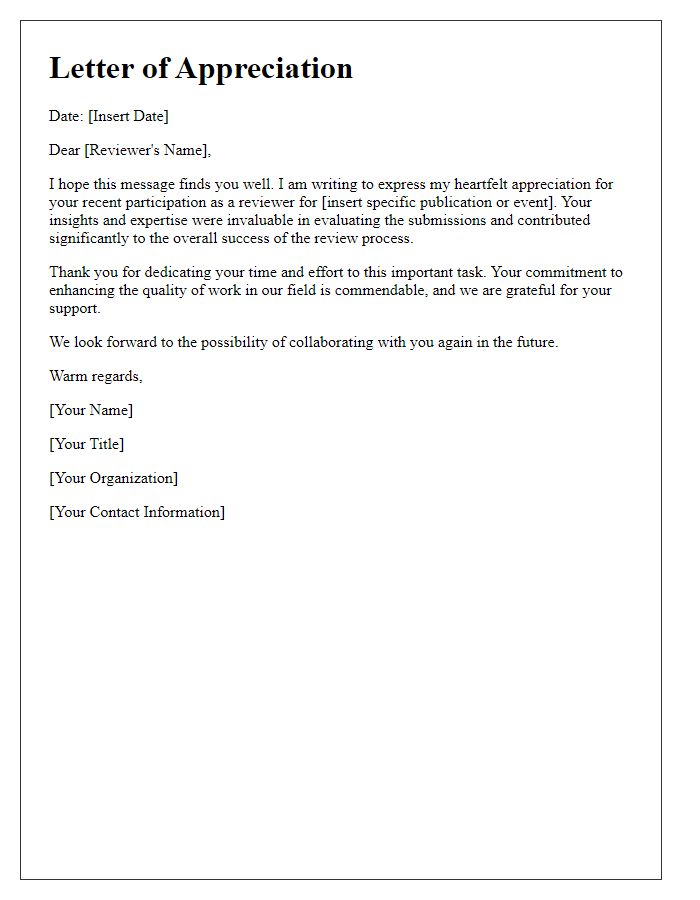

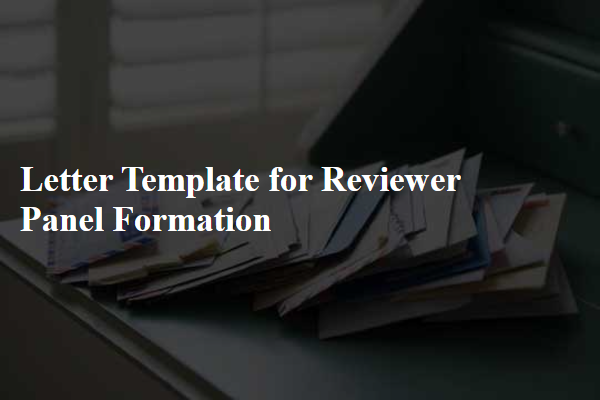
Comments